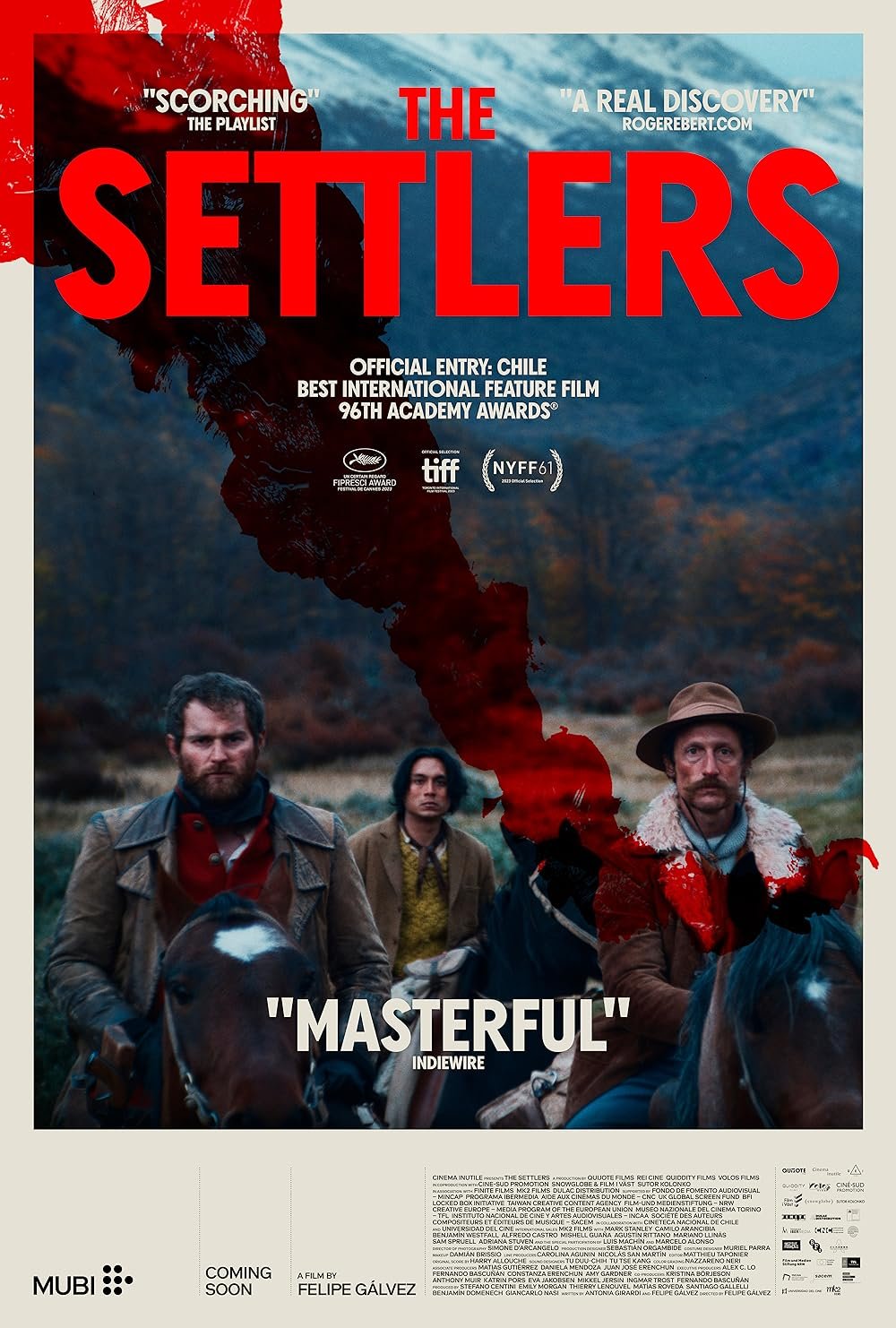By Antonio Pinto
When I lived and worked in Peru there was a feeling that Chile was a reference point for what a national cinema could look like. Beyond the fact that projects were ingeniously put together – pooling resources internationally – they were also the product of a culture that had developed a critical edge through its own recent history. While many Peruvian films espoused a naive belief in the possibilities of healing the country through culture, Chilean cinema seemed less patronizing, more embittered and freewheeling. If the trendy word bandied about by Peruvian filmmakers (and advertisers) was “aspirational”, then it seemed their Chilean counterparts were “giving it straight”, because that’s what the culture demanded. The question, looking forward, was if this edge could be preserved.
Los colonos (Felipe Gálvez, 2023)
When I heard of The Settlers, I was very interested. I knew little about the film except that it dealt with the extermination of the indigenous peoples that populate Tierra del Fuego, in the far reaches of Patagonia. It seemed a gritty and vertiginous descent into the horrors of settler colonialism. And while it is, in fact, gritty, there is something to be said about how controlled it is. Despite being set in the ends of the earth, amid howling winds and some almost alien landscapes, it’s often a safe film, more eager to denounce than to unsettle. When, eventually, it loses itself in the madness, though, it is thrilling.
The film takes the perspective of a mestizo character, who, on account of being a great shooter, is enrolled on a three-man expedition to secure a wealthy landowner’s territory. There is a compelling ferociousness in the indignant stare he fixes on the American and Brit he accompanies as they explore the terrain and eventually unleash terror on the indigenous people. But what is going on in his mind is clearly delineated for us – he is always a perspicacious spectator, at a safe distance from the two murderous men.
Eventually, the narrator strays from the safety of the mestizo’s perspective. The camera takes stock in the violence and the insanity of the foreigners. When they meet a coronel (the best actor of the movie), we finally get a glimpse of the allure of the violence, we are attracted and repelled, in awe and revolt. In this final stretch, the film approaches the poetic madness of Herzog’s Aguirre.
This is a large, international film. Its size seems to stifle the fluidity of the direction which doesn’t feel at ease to delve into the story and take risks. But in the aforementioned sequences the film forgets its size, finds its element and unleashes its force; or, in other words, gives it straight.
Antonio Pinto (Lima, 1995) studied Hispanic Literature and Linguistics in the Pontificia Universidad Católica del Perú. Since 2021 he has been living in Brooklyn, NY, where he writes and makes films. He posts regularly about film on his newsletter Eddie Cusik. Currently, he is developing his first feature film.




